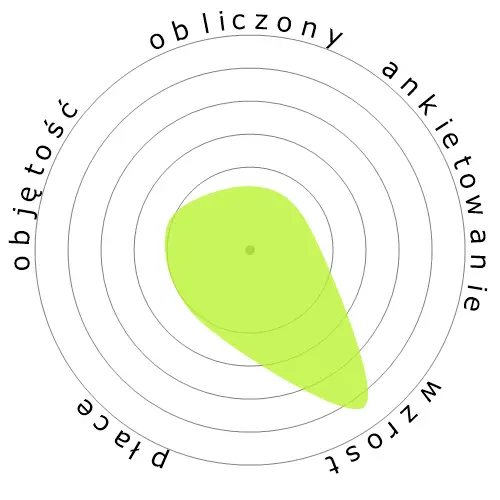Tłumacze i Interpreci




Ludzie również oglądali
Obliczone ryzyko automatyzacji
Wysokie ryzyko (61-80%): Zawody w tej kategorii stoją przed znaczącym zagrożeniem ze strony automatyzacji, ponieważ wiele z ich zadań może być łatwo zautomatyzowanych przy użyciu obecnych lub bliskich przyszłości technologii.
Więcej informacji na temat tego, czym jest ten wynik i jak jest obliczany, jest dostępne tutaj.
Ankieta użytkownika
Nasi goście głosowali, że jest bardzo prawdopodobne, iż to zawód zostanie zautomatyzowany. Poziom ryzyka automatyzacji, który wygenerowaliśmy, jest mniej jasny i pokazuje 70% szans na automatyzację.
Jakie są Twoje zdanie na temat ryzyka automatyzacji?
Jakie jest prawdopodobieństwo, że Tłumacze i Interpreci zostanie zastąpione przez roboty lub sztuczną inteligencję w ciągu najbliższych 20 lat?
Nastroje
Poniższy wykres jest zamieszczany wszędzie tam, gdzie istnieje znaczna liczba głosów, aby przedstawić istotne dane. Te wizualne reprezentacje pokazują wyniki ankiet użytkowników w czasie, dostarczając istotnych wskazówek dotyczących trendów nastrojów.
Nastroje w czasie (kwartalnie)
Nastroje w czasie (rocznie)
Wzrost
Liczba ofert pracy na stanowisku 'Interpreters and Translators' ma wzrosnąć 2,3% do 2033
Całkowite zatrudnienie oraz szacowane oferty pracy
Zaktualizowane prognozy mają być dostępne 09-2025.
Płace
W 2023, mediana rocznej pensji dla 'Interpreters and Translators' wynosiła 57 090 $, czyli 27 $ za godzinę.
'Interpreters and Translators' otrzymali wynagrodzenie wyższe o 18,8% od średniej krajowej, która wynosiła 48 060 $
Płace z biegiem czasu
Objętość
Od 2023 roku zatrudnionych było 51 560 osób na stanowisku 'Interpreters and Translators' w Stanach Zjednoczonych.
To oznacza około < 0,001% zatrudnionej siły roboczej w całym kraju.
Inaczej mówiąc, około 1 na 2 tysiąc osób jest zatrudnionych jako 'Interpreters and Translators'.
Opis stanowiska pracy
Tłumacz język mówiony lub migowy, lub przekładaj tekst pisany z jednego języka na inny.
SOC Code: 27-3091.00


Komentarze
Leave a comment
Automation can incredibly speed up the process of translation but human element is a must. Also, in terms of transcreation and localisation for different contexts etc. the AI does not have enough understanding of culture and context regardless of the input.
No not a chance.
Ps : Google translate is still funny, I tried translating 1 sentence into like almost all languages and the sentence was not even close to what I had originally typed. I don't think it's gonna get better
However, we humans are still needed to correct the sometimes amazingly stupid solutions the machine offers when the text is completely new and there are no precedents. Anyway, I would not advise my daughter to choose this profession, except when she likes text editing...
Also interpreters and translators are two very different jobs with different automation risks, I don't think they should be together in one category.
Zostaw odpowiedź na temat tego zawodu